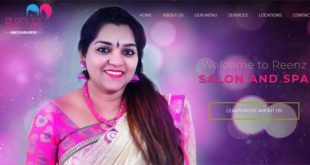Technoparktoday.com: One out of three people affected by stroke falls victim to depression as well, a top scholar noted at a national stroke conference that concluded in the city today.
The resultant emotional disturbance that may manifested in forms such as sleep disturbance, appetite loss, low self-esteem, agitation, difficulty in concentration calls for proper management of depression, according to Dr Maree Hackett, who spoke at ISACON 2014 organised by the Kerala Association of Neurologists.
“Most stroke physicians have no access to scientific diagnosis of depression. More often than not, they recognize the problem only when the symptoms are obvious,” noted the expert from University of Sydney.
Many a time, the clinicians may not have the time to diagnose as it would mean a loss of anything from ten minutes to one hour for one patient, she said.
The percentage of stroke patients with depression remains the same in the first month, after three months, or even six months down the event of stroke, added Dr Hackett.
Dr Andrew Demchuk from Canada noted that fatigue could continue even during the recovery time of the patient. “Such a phenomenon has affected several marital relations,” he said, stressing the need to address depression among patients.
As for the management of depression, the experts noted that techniques range from conservative (of doing nothing or watchful waiting) to psychological interventions such as talking therapies and use of anti-depressants.
Dr Hackett, who is an associate professor (medicine) with The George Institute of Global Health under the Sydney varsity, said that until 2004 there was no evidence that talking therapies worked in prevention of depression, while a 2008 study found proof to the contrary.
Similarly, trials with anti-depressants had until 2008 not proved their efficacy; what’s more, some cases showed them to have side effects too. There has not been any complete study as to prove the efficacy of a combination of talking therapies and antidepressants in prevention of depression.
While Dr Eric Juttler, Dr Rohit Bhatia and Dr Girish Menon gave lectures related to ‘Surgery and Stroke’, Dr C Kesavadas, Dr Sanjith Aaron and Dr Tanya N Turan spoke about neuroimaging and stroke.
ISACON 2014, in its concluding session, discussed in detail practice guidelines on stroke, with Dr Nasli Ichaporia, Dr Shirish Hastak, Dr Kameshwar Prasad and Dr V.G Pradeep Kumar lecturing about the different aspects of cerebrovascular disease.
 TechnoparkToday.com – Techies News, Jobs, Events & Lifestyle! Technopark News Jobs & Lifestyle!
TechnoparkToday.com – Techies News, Jobs, Events & Lifestyle! Technopark News Jobs & Lifestyle!



